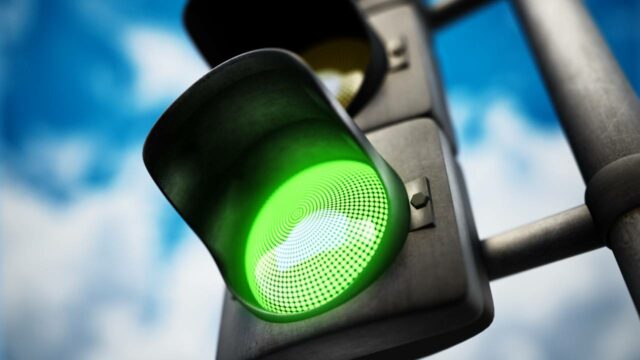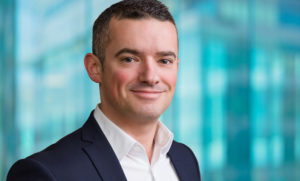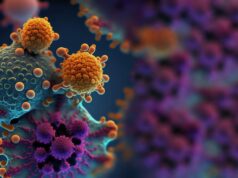
Elicera gets green light for CAR T clinical study
Elicera Therapeutics has gotten the approval to begin a phase I/IIa study with lead CAR T candidate ELC-301 in B cell lymphoma, mantle cell lymphoma or indolent lymphoma. This is a key milesone for the Swedish biotech, who is banking on its iTANK technology platform to enhance a patient’s immune system in the face of cancer. BioStock spoke with Elicera’s CEO Jamal El-Mosleh to learn more.
CAR T-cell therapies have shown transformational potential for the treatment of cancer, generating excitement among researchers and oncologists. Six CAR T drugs have been approved by the FDA since 2017, and many are in clinical evaluation.
The field has been hot of late, with several deals being made. A prime example came late last year when a subsidiary of Legend Biotech announced a global licensing agreement with Novartis worth more than USD 1 billion to advance its preclinical autologous CAR T candidate LB2102 for development.
Read more about the promise of CAR T therapies here.
The only CAR T developer in Sweden
In Sweden, the only company working with CAR T technology is Elicera Therapeutics. The cell and gene therapy company has two CAR T projects in its pipeline, ELC-301 and ELC-401. ELC-301 is being developed to treat B-cell lymphoma, while ELC-401 is in preclinical development for the treatment of glioblastoma, a solid tumour of the brain.
What sets Elicera’s CAR T therapies apart from those already on the market is that they are armed with the company’s proprietary immune-boosting technology, iTANK. When introduced into the body, Elicera’s iTANK-armed CAR T-cells bind to their tumour target, activating a signalling process that ultimately leads to the recruitment of other immune cells in the tumour tissue, thus optimising the CAR T effect. A long-term immunological memory against tumour targets is generated, which prevents cancer relapse. Read more about iTANK here.
ELC-301 approved for clinical development
Last week, Elicera reached a major milestone in its pursuit to bring new cancer cell therapies to the market. The company received approval from the Swedish Medical Products Agency to start the clinical phase I/IIa study CARMA with ELC-301 in patients diagnosed with difficult-to-treat CD20-positive B-cell lymphoma, mantle cell lymphoma or indolent lymphoma, or who have relapsed in the disease.
CARMA is a single-arm, unblinded, multicenter study aimed at evaluating the anti-tumour effect, toxicity and tolerability of Elicera’s CAR T candidate after one dose. There will be two stages for the study; a dose escalation phase (phase I) with a maximum of 12 patients, followed by a dose expansion phase (phase IIa) with at most 6 patients receiving the maximum tolerated dose.
The study will be conducted at Uppsala University Hospital and Karolinska University Hospital in Huddinge. According to the company’s preliminary timetable, the dose escalation study is expected to be completed and reported in the second half of 2025, and phase II is expected to be completed and reported approximately 6-12 months later. The full CARMA-study is expected to be completed and reported in 2027, after a follow-up period of at least two years.
CEO insights
As mention in the company’s Q4 report, which was just released this week, in January, Elicera announced a capital raise that guarantees gross proceeds of at least 27.5 MSEK. This, together with current cash and upcoming grant payments, puts the company in a strong financial position to pursue the clinical study.
Stay tuned for Q4 follow up from BioStock!
To get a full overview of Elicera’s plans for this clinical trial, and more, BioStock spoke with CEO Jamal El-Mosleh.

Jamal, how important is this milestone for Elicera?
– This is one of the most important milestones achieved in the history of the company. The ELC programme will be our first CAR T-cell therapy that we bring to patients, and this will also be the first time the iTANK technology platform will be used in a clinical setting. We are very happy to now be able to offer this therapy to cancer patients that are in desperate need of effective treatment alternatives.
How does ELC-301 fit into the treatment landscape for B-cell lymphoma?
– There are three approved CAR T-cell therapies in B-cell lymphoma and one in mantle cell lymphoma, and they are all targeting the same cancer antigen, namely CD19. In contrast, ELC-301 targets CD20, which is also overexpressed on cancer cells in B-cell and mantle cell lymphoma, in addition to being armed with our patented and commercially available iTANK-technology to elicit a potent parallel immune response against multiple cancer antigen targets. We can expect around 50 per cent of patients with B-cell lymphoma to relapse, and most of these patients will no longer be able to continue treatment with CD19 CAR T-cell therapies due to loss of target antigen. ELC-301 is expected to be able to help these patients as it targets a different cancer antigen and since it is armed with the iTANK-platform.
Is a licensing deal a possibility for this candidate if the results from the clinic are positive?
– Yes. In May last year, Janssen licensed one CD20 directed CAR T-cell candidate and one “dual” CAR T-cell candidate (targeting both CD19 and CD20) from Cellular Biomedicine Group for a total of USD 245 million in upfront payments and additional potential future milestone payments and royalties. Both candidates had completed “smaller” phase I/II-studies in China, reporting strong data.
Could you comment further on the role that iTANK has in making ELC-301 a promising candidate?
– The iTANK -platform incorporates a transgene in CAR T-cells that code for a bacterial-derived protein with strong immune stimulating properties. The goal is two-fold:
1) To activate patients’ killer T-cells against many different cancer antigen targets, besides CD19 and CD20, for example. This will be crucial for the development of effective CAR T-cell therapies in solid tumours as they are notorious for having a very diverse expression of antigen targets on tumour cells, leading to antigen escape and the formation of CAR T-cell resistant tumours.
2) To counteract the hostile tumour microenvironment in solid tumours and help CAR T-cell fight cancer.
Finally, can you speak to the financial aspects of conducting this study and whether the upcoming capital raise will be enough to support the trial?
– The upcoming capital raise has secured gross proceeds of about 27 MSEK which, in combination with current cash and scheduled future EIC-grant payments, is enough to treat all planned 18 patients. We plan to release data from first cohort of three patients late this year, with more data from the first 12 patients in second half of 2025.
The content of BioStock’s news and analyses is independent but the work of BioStock is to a certain degree financed by life science companies. The above article concerns a company from which BioStock has received financing.

